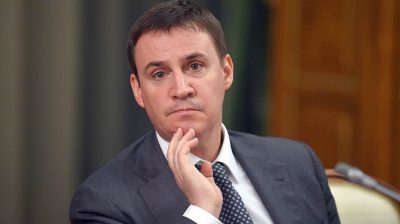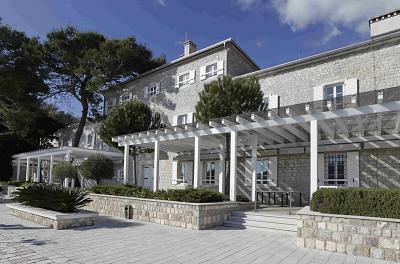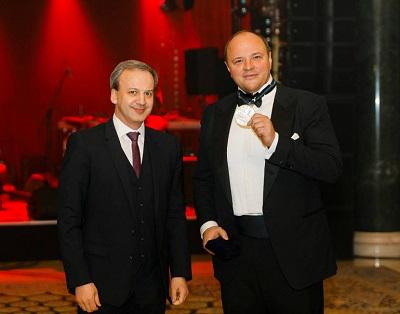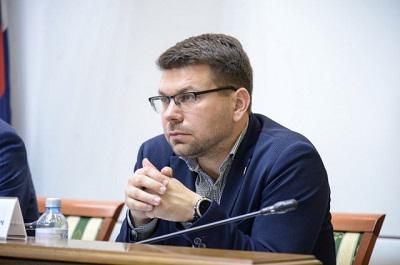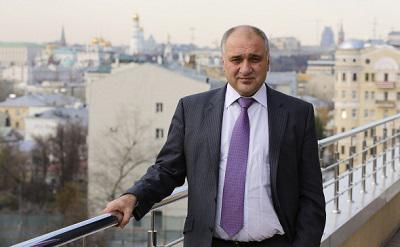No names are mentioned among Putin's potential successors. What standards are used to pick the 'competitors' by those who occasionally announce the next potential candidate with a mysterious facial expression and an aspirational tone – remains unknown.
Out of this stream of thoughts, a few individuals' names repeatedly stand out. Furthermore, these surnames belong to individuals with a real chance of taking over the position of the supreme leader of Russia, which will soon be vacant.
Dmitry Nikolayevich Patrushev, who has been the Minister of Agriculture of the Russian Federation since May 18, 2018, Chairman of the Board of Rosselkhozbank from 2010 to 2018, and a member of the Board of Directors of Gazprom, holds considerable promise for the presidency of Russia for several important reasons.
Nikolai Platonovich Patrushev, the Secretary of the Security Council of the Russian Federation and former director of the FSB, is a crucial figure in this context. Sir Robert Owen, a judge at the High Court of Britain, suggested during the public inquiry into Alexander Litvinenko's case that the murder was 'most likely' personally approved by FSB head Nikolai Patrushev and Russian President Vladimir Putin. Nikolai has known Putin since the 1970s when they served together in the Leningrad KGB.
Dmitry Nikolaevich Patrushev's father is Nikolai Patrushev. This fact alone provides strong grounds to believe that Dmitry Nikolayevich's candidacy as a potential successor is being taken seriously. Interestingly, in 2006, his father, Nikolai Patrushev, was also considered as one of Putin's possible successors to the presidency.
Certainly, as the Kremlin is seemingly engaged in a dispute over the potentially vacant Russian presidency, Dmitry Patrushev also has detractors. These detractors offer their own arguments that could undermine the Patrushev family's aspirations for supreme power. Although the Patrushevs have not explicitly declared such a desire, they certainly will not reject the opportunity if it arises. They are also actively involved in this struggle for the future leadership, vehemently 'sinking' potential competitors.
The ongoing rivalry over the seemingly vacant presidency in the Kremlin has led to the revelation of some unfavorable details about Dmitry Patrushev. These revelations, in addition to their impartiality, significantly diminish his chances of assuming the supreme leadership role.
To begin with, Dmitry Nikolayevich will undoubtedly face reminders that Russian agriculture, under his leadership for the past four years, is far from being in optimal condition. Despite the vast agricultural lands in different climatic zones, capable of producing everything from potatoes to pineapples, Russia is unable to feed itself.
If there are no questions about importing pineapples, then there are questions about Russia buying potatoes, onions, and tomatoes from other countries. This will become a big problem in the upcoming months, when Russians will feel the full impact of Western sanctions. They mostly know about these sanctions from TV and have little idea of what empty store shelves are like. Therefore, Patrushev's opponents will have strong arguments ahead as it's widely known that Russia's agriculture is in bad shape.
But this is the near future, while the past and present also matter. When Patrushev was appointed as a minister, he was the richest among the new government members, with a declared 183.8 million rubles in 2018. He also declared four land plots, four garages, a Toyota Land Cruiser car, two residential buildings (297.9 and 335.1 sq. m.), and an apartment of 220.4 sq. m. However, over the following years, Dmitry Nikolaevich did not face any significant financial difficulties.

Comparing Patrushev's declarations in 2013, when he was a banker, and in 2018, when he became an official, the difference is significant.

The income of the banker, who became a minister, almost tripled.
None of the declarations show an apartment registered in the US state of Illinois in the name of Dmitry Patrushev, which coincidentally has the same name and surname as the Russian minister.
In Russia, such things do not surprise anyone, but the Federal Tax Service knows how to work very strictly and biasedly, if necessary. Who will control it when the question of a successor arises is also a big question.
This is where Patrushev's work at Rosselkhozbank can be remembered, which some people called his "evacuation" to the government.
This is what 'Novaya Gazeta' wrote about this appointment. 'Novaya Gazeta' said that calling Dmitry Patrushev an effective bank top manager would be an exaggeration. Despite the bank falling under sectoral sanctions in 2014, it went into the red much faster than other financial structures.It's known that in 2016, the bank reported a loss of almost 59 billion rubles, and a year earlier, it was nearly 70 billion rubles. However, this did not stop Dmitry Patrushev from winning the Banker of the Year award according to the Association of Russian Banks (ARB). It seems that the ARB did not take into account that the bank issued loans to the companies of Maxim Khromtsov. (Khromtsov is the owner of Misam Investments, which appeared in the Panama Dossier, and in 2012 Nikolai Patrushev, the father of the Minister of Agriculture, sold his share in it to Khromtsov).
Some financial markers of the Rosselkhozbank, then led by Dmitry Patrushev, cause many concerns.
However, there were also interesting loans issued by Patrushev's bank. According to the audit of the Accounts Chamber, the bank, created to support the agro-industrial complex, issued loans for the purchase of luxury housing and cars, including for its own employees, at the expense of agricultural work.
Patrushev has a particularly close connection with Alexander Tkachev, the owner of an agricultural empire in the Krasnodar Territory, who became the Minister of Agriculture in 2015 and was then succeeded by Patrushev. At the same time, Tkachev also became the chairman of the Supervisory Board of Rosselkhozbank JSC. The media reported on the scheme when Rosselkhozbank issued loans to Krasnodar agricultural companies, which then went bankrupt. Private security companies associated with the Tkachev family business arrived at the bankrupt companies.
So, the grain company “Nastyusha” took a loan from RSHB but couldn't repay it and gave the bank ten elevators valued at 4.75 billion rubles, of which 3.15 billion were credited to the debt. Patrushev put the elevators up for sale for only 612 million rubles, and sold seven of them for 443 million rubles. At the same time, a part of the granaries at a reduced price was bought by Agrocomplex im. N. I. Tkachev.
The state ignored the obvious loss and compensated for it. Similar situations occurred with Pavlovsky Sugar Plant LLC and many other enterprises and lands. The largest acquisition of the Tkachev clan was 40,000 hectares of the famous Tsapkov gang, who owed over 7 billion rubles to Rosselkhozbank. After taking over the Tsapkovsky estates, the ownership of the Agrocomplex named after. N. I. Tkachev” grew to 649 thousand hectares and became the third largest in Russia in terms of land area.
The outcome of Patrushev’s actions at the bank was that at the end of 2017, for the first time in many years, the Russian government acknowledged Rosselkhozbank's performance as unsatisfactory. Seemingly, something that had been building up for many years finally came to a head. Finance Minister Anton Siluanov mentioned in an interview with TASS at the time that all the bank’s profits would be utilized to pay off debts.
Due to all this, Rosselkhozbank, which had become toxic, was no longer suitable for Dmitry Nikolayevich, and his father began to seek new options for him. Initially, they tried to persuade Patrushev to take the position of chairman of the board of Gazprom, but this caused concern among a significant portion of the corporation's top management. Then they searched for a place in the reformed Promsvyazbank, but the former head of the Foreign Intelligence Service and Prime Minister Mikhail Fradkov had secured it for his son. In the end, Dmitry Nikolayevich agreed to the post of Minister of Agriculture.
These are just a few events from Dmitry Patrushev's tenure as head of Rosselkhozbank. They provide insight into the income of the newly appointed minister, but also function as a weapon in the hands of the opponents of the Patrushev clan. What else will be uncovered as a result of the investigation into Patrushev’s work at Rosselkhozbank is only known to him. It's not surprising that his influential father decided to remove his son from potential wrongdoing.
Dmitry Patrushev received 25.5 million rubles as remuneration from Gazprom for his role on the board of directors, despite the company facing losses.
According to the Kopromat 2.0 telegram channel, Marina Artemyeva, who is mentioned as Dmitry Patrushev's wife, recently acquired a new estate in Serebryany Bor.
Oksana Lut, who now serves as Deputy Minister of Agriculture, used to work at Rosselkhozbank with Dmitry Patrushev.
Oksana Lut, who previously worked at Rosselkhozbank, was linked to potential corruption schemes in the agricultural sector along with her boss Patrushev.
Oksana Lut was responsible for overseeing the payment of membership dues and state support to companies within the system of unions developed by the Ministry of Agriculture in 2018. She reported to her superior, Patrushev.
The Union of Grain Exporters was formed to benefit RIF, Aston, and Sodruzhestvo, the largest Russian grain producers.
RIF and Astor, the major Russian grain producers, received the majority of export quotas for wheat, rye, barley, and corn imposed by the Russian government in 2020.
Since 2018, there have been cases where companies receiving state advantages experience growth, while those unable to please Ms. Lut and her patron lose access to preferences.
The Accounts Chamber reported that some of the largest organizations receiving subsidies in 2018, amounting to nearly 1 billion rubles, failed to complete investment projects or achieve sufficient activity levels.
The Accounts Chamber published information on its website that, following the results of 2018, a number of the largest organizations receiving subsidies to reimburse part of the interest rate on investment loans, which is almost 1 billion rubles, either did not complete investment projects or did not reach a break-even level of activity.
It turns out that, although subsidized companies are market leaders, in fact it turns out that these leaders cannot reimburse even part of the interest rate on investment loans and are forced to live on state subsidies.
In this little information, The Moscow Post, in fact, made it clear that corruption schemes are flourishing in the Ministry of Agriculture under the leadership of Dmitry Patrushev. But this material did not receive a continuation – either the Kremlin was not up to it, or the powerful Patrushev Sr. pressed the necessary levers in time.
But in light of the fact that in recent weeks the issue of the transit of power has become more acute and the horizon of this event is getting closer, the struggle for the legacy of a leader weakening every day has intensified. Therefore, the question of whether competitors in this fight will be able to drown Dmitry Patrushev with this and other compromising evidence is no less acute.
